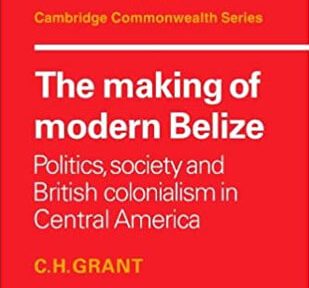As a matter of fact, from the outset the GWU supported the People’s Committee (PC); its founder and only President during the seven years of its existence, Cecil Betson, having spoken at the first protest meeting. Furthermore, the association seemed mutually beneficial.
In addition to having a strong organizational machinery, the GWU had in its President and in its General Secretary, H. A. Middleton, national figures. Middleton had also in the first few weeks of the nationalist upsurge attended the World Confederation of Free Trade Unions (WCFTU) in England where he was promised support by the British Trade Union Congress. The union therefore was in a position to lend legitimacy to the activities of the PC.
At the same time the union leaders were past their prime, as both Betson and Middleton were about seventy years old. They therefore welcomed the energy of youth and were occasionally joint sponsors with the PC of meetings at the “Battlefield.” They also entertained a suggestion from Nicholas Pollard, one of the founding members of the PC and President of the weak Mercantile Clerk Union (MCU), that his union be structurally associated with the GWU. But while Pollard conceived of a single union of which the MCU would be a branch, the GWU leaders spoke in terms of a confederation of trade unions.
However, the PC leaders were not content with either the GWU’s voluntary support or its idea of a loose association. They sought complete control of the union’s organizational machinery and if this could not be achieved by what Betson was to recognize as “a subtle infiltration among the masses in the Union,” then a naked takeover of the executive council was seen as the alternative. Within four months of the Committee’s formation, the opportunity arose at the union’s seventh annual conference. The outgoing President, in a rearguard battle to be re-elected, wondered “if the working masses realise fully the aspect of this sudden appearance joining their fold.” A lengthy reference to his achievements in office did not prevent the end of his seven-year-old presidential life.
The veteran leader lost to Nicholas Pollard. This was not the only important victory for the Committee. John Smith was named the Vice-President, while Price and Goldson were elected to the Executive Council. The takeover had been accomplished.
The new executive, confident and condescending, was benign enough to agree to a resolution of the General Secretary, Middleton, the long-standing colleague of the defeated presidential candidate, that “in recognition of his seven years as a ‘pioneer of the union,’ Betson be elected ‘Past President’ with the right to sit on the GWU Executive Council.” As if to remind Betson that his era of trade unionism was over, the Executive Council conferred upon him the doubtful honorific title of “Patriarch of the Union” and voted a suitable purse for his “distinguished service to the cause of labour.”
The political leaders had assumed control of the GWU not only for its organizational value in the districts, but perhaps more important because they believed that industrial objectives could be more effectively pursued by political means. As the union gained in strength it was increasingly dominated by politicians. These leaders extended their personal patronage to the GWU to such an extent that the fortunes of the union depended upon those of the individual politicians. Indeed this dependency, which the politicians seldom admitted, was the dominant feature of the trade union movement during the 1950s.
-Pgs. 126, 127, THE MAKING OF MODERN BELIZE, by C. H. Grant, Cambridge University Press, 1976.

